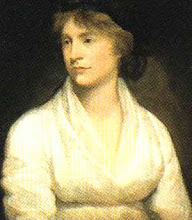Giving a brief summary of the text in question, one can describe Gorgias’s Encomium of Helen as a tale of a beautiful woman who causes a ten-year war. Allegations and confusion arise within Sparta after Helen, the wife of King Menelaus, is kidnapped by Paris, the prince of Troy. In an effort to reclaim his wife, Greeks rage war on Troy and destroy the city.
After Helen returns to her husband, many issues arise concerning her character and the part she plays in the brutal war. Was she raped by Paris and forcibly kidnapped or did she leave willingly? In essence, Helen of Troy becomes a central figure in the concept and definition of Greek morality and the role of women within its society.
The object of discussion and analysis is the way that Gorgias uses rhetorical devices to “plead” Helen’s case. He asserts that Helen should not be accused and blamed for starting the war; instead she should be praised or even pitied. Gorgias’s oratorical style aids him in providing an eloquent and effective argument. He made an open claim that his purpose is to deflect blame and shame from Helen of Troy.
He begins with logical and reasonable statements. He states, “What is becoming to a city is manpower, to a body beauty…to a speech truth.” He urges that it is his duty “to refute the unrightfully spoken…those who rebuke Helen.” He continues by giving ethos to her character by stating that she is the daughter of Zeus, a god. He explains that her “god-like beauty” caused her kidnapping to take place. Furthermore, Gorgias asserts that it could have been “by [the] will of Fate [or the] decision of the gods [or the] vote of necessity [or] by force [or] by words seduced [or] by love possessed” that caused Helen to do “what she did.” He insists whatever the cause, “one must free Helen from disgrace” and sees her “misfortune.”
Moreover, Gorgias asserts the probability and possibility of Helen’s rape by Paris. If she was raped “by violence and illegally assaulted and unjustly insulted,” it becomes clear that the rapist is to blame. Not Helen. He continues to state that if rape did not occur, but speech (logos) was the culprit that “persuaded her and deceived her heart” then she is still not to be blamed. After all, “speech is a powerful lord... [and] the force of persuasion prevails.” The persuader is to be blamed. Not Helen. Finally, he likens the “effect of speech upon…the soul is comparable to the power of drugs” and in the end “remove[s] disgrace from [her].
In essence, Gorgias uses rhetoric to justify, praise and pity Helen’s actions. He achieves the effect through a style of oration that utilizes sounds and words and rhythms of words. The style brought him great notoriety and wealth, but also criticism and scorn. According to A Synoptic History of Classical Rhetoric by James Jerome Murphy, Richard A. Katula, Forbes I. Hill, and Donovan J. Ochs, Gorgias’s Encomium of Helen “was part poetry, part oratory, part literature, part entertainment…quintessential Gorgian rhetoric.”
To put it simply, Gorgias effectively captivates his audience by using several techniques. Much akin to the multi-media devices that we use today, the modern day presentation is part YouTube video, part audio, part statistics and Excel charts, part oratory and part images. Simultaneously, he systematically organizes his argument into four distinct parts: fate, force, speech, and persuasion. Several occurrences of ethos and logos are obvious in the speech, but pathos (emotional appeals, metaphor, amplification, or storytelling) is less obvious and even possibly absent.
Subscribe to:
Post Comments (Atom)









No comments:
Post a Comment